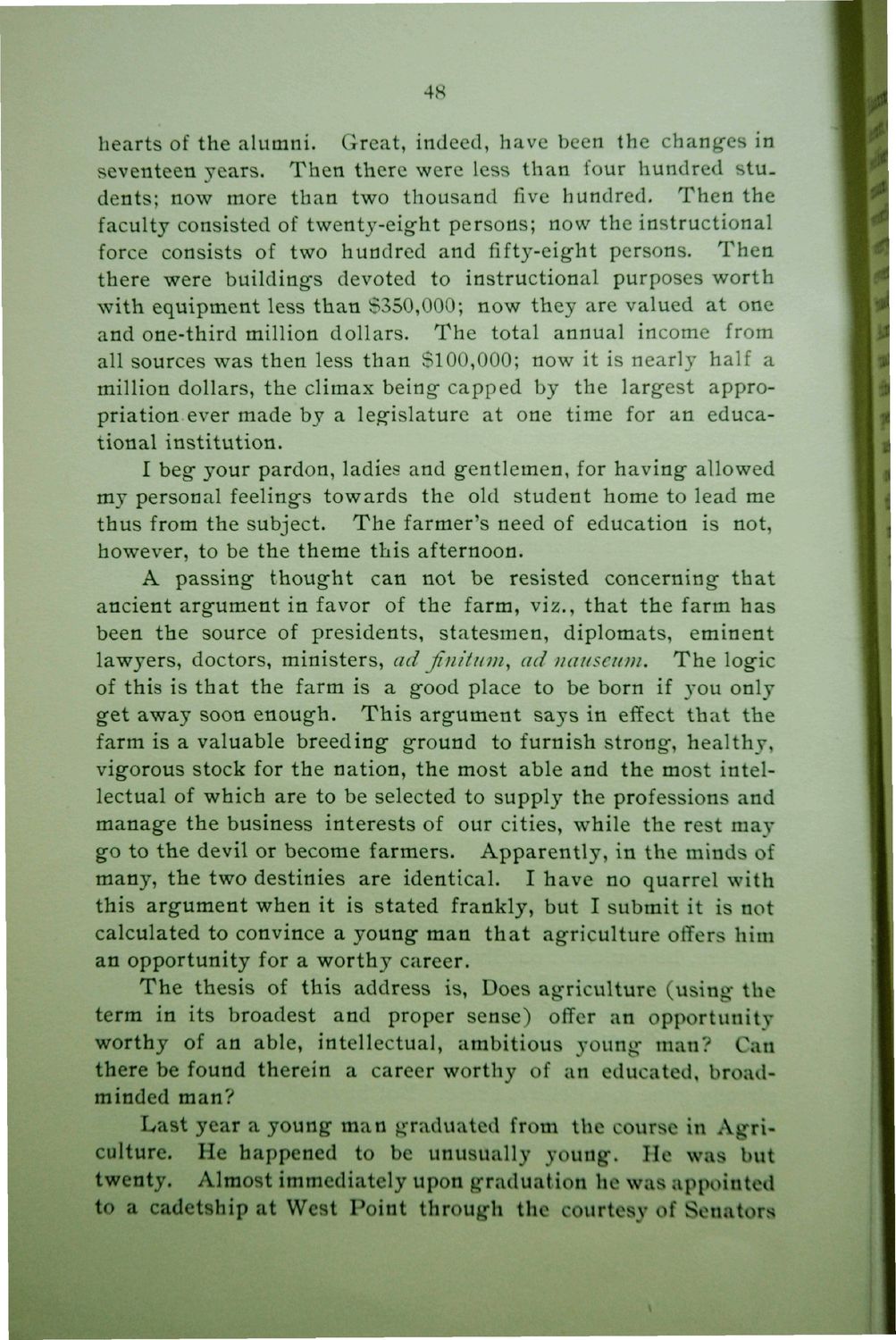| |
| |
Caption: Dedication - Ag Building
This is a reduced-resolution page image for fast online browsing.

EXTRACTED TEXT FROM PAGE:
48 hearts of the alumni. Great, indeed, have been the changes in seventeen years. Then there were less than four hundred students; now more than two thousand five hundred. Then the faculty consisted of twenty-eight persons; now the instructional force consists of two hundred and fifty-eight persons. Then there were buildings devoted to instructional purposes worth with equipment less than $350,000; now they are valued at one and one-third million dollars. The total annual income from all sources was then less than $100,000; now it is nearly half a million dollars, the climax being capped by the largest appropriation ever made by a legislature at one time for an educational institution. I beg your pardon, ladies and gentlemen, for having allowed my personal feelings towards the old student home to lead me thus from the subject. The farmer's need of education is not, however, to be the theme this afternoon. A passing thought can not be resisted concerning that ancient argument in favor of the farm, viz., that the farm has been the source of presidents, statesmen, diplomats, eminent lawyers, doctors, ministers, ad jtnitumy ad nauseum. T h e logic of this is that the farm is a good place to be born if you only get away soon enough. T h i s argument says in effect that the farm is a valuable breeding ground to furnish strong, healthy, vigorous stock for the nation, the most able and the most intellectual of which are to be selected to supply the professions and manage the business interests of our cities, while the rest may go to the devil or become farmers. Apparently, in the minds of many, the two destinies are identical. I have no quarrel with this argument when it is stated frankly, but I submit it is not calculated to convince a young man t h a t agriculture offers him an opportunity for a worthy career. T h e thesis of this address is, Does agriculture (using the term in its broadest and proper sense) offer an opportunity worthy of an able, intellectual, ambitious young man? Can there be found therein a career worthy of an educated, broadminded man? Last year a young man graduated from the course in Agriculture. He happened to be unusually young. He was but twenty. Almost immediately upon graduation he was appointed to a cadetship at West Point through the courtesy of Senators
| |